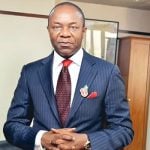As the Federal Government launched the much awaited Nigerian Economic Recovery and Growth Plan (NERGP) with objective of sustained inclusive growth by increasing national productivity and achieving sustainable diversification of production, SANYA ADEJOKUN examines the private sector roles in pushing the NERGP to success.
Finally, President Muhammadu Buhari has launched the much awaited Nigerian Economic Recovery and Growth Plan (NERGP) with objective of sustained inclusive growth by increasing national productivity and achieving sustainable diversification of production. It also aims to significantly grow the economy and achieve maximum welfare for the citizens, beginning with food and energy security. The plan envisages 21 programmes, 60 strategies and 265 key activities.
The ERGP has three in-built broad strategic objectives that will help achieve its vision of inclusive growth. The first is to restore growth by focusing on achieving macroeconomic stability and economic diversification. Macroeconomic stability will be achieved by undertaking fiscal stimulus, ensuring monetary stability and improving the external balance of trade. Similarly, to achieve economic diversification, policy focus will be on the key sectors driving and enabling economic growth, with particular focus on agriculture, energy and MSME led growth in industry, manufacturing and key services by leveraging science and technology.
Second is to promote social inclusion. Federal Government will continue to provide support for the poorest and most vulnerable members of society by investing in social programmes and providing social amenities. Targeted programmes will reduce regional inequalities, especially in the North East and Niger Delta. Finally, the objective of job creation and youth empowerment would receive priority.
The ERGP accordingly prioritizes job creation through the adoption of a jobs and skills programme for Nigeria including deepening existing N-Power programmes, and launching other public works programmes. The partnership for job creation will also focus on the policies required to support growth and diversification of the economy by placing emphasis on Made-in-Nigeria, public procurement which takes account of local content and labour intensive production processes. All initiatives under job creation would prioritize youth as beneficiaries.
According to the NERGP, Nigeria has the potential to become a major player in the global economy by virtue of its human and natural resource endowments. And so between 2017 and 2020, Nigeria projects to grow from the current recession to attain 7 per cent growth rate.
It seeks to improve the living standards of Nigerians through social inclusive initiatives, massive job creation, youth empowerment programmes and human capital development, aims to build a globally competitive economy by investing in critical infrastructure and improving the overall business environment.
Some of the priorities also include ensuring a stable macroeconomic environment where fiscal, monetary and trade policies are fully aligned; investing in agriculture to achieve food security and become net exporters of key agricultural products; tackling the energy constraints to ensure (in particular) power and petroleum product sufficiency; improving transport infrastructure and; accelerating industrialization by focusing on Small and Medium Scale Enterprises.
Minister of Budget and National Planning, Senator Udo Udoma said at a media briefing in Abuja recently that by merging the Budget Office with the Ministry of Planning, President Muhammadu Buhari showed a determination to ensure that the government’s plans are effectively implemented. “This ensures the NERGP will be effectively implemented. As you are aware many of the initiatives in the ERGP are captured in the 2017 Budget Proposal currently before the National Assembly. For instance, the 2017 Budget Proposals makes provision for the sum of N50 billion as FGN’s contribution for Special Economic Zones. Provision has also been made of N100 billion to support the Social Housing Fund. Also counterpart funds for the rail projects and for the Mambilla Hydro-Electric Power Project.”
Also, Buhari currently has a pending request before the National Assembly, asking for permission to borrow $30 billion between now and 2019. Of the total, $25.8 billion is for Federal Government to build the much awaited over 3,000 megawatts Mambilla Hydro project, which will gulp $4.8 billion; Calabar- Port Harcourt- Onne Railway Modernisation $3.5 billion; Abuja Mass Rail Transit Phase 2- $1.6 billion; Lagos-Ibadan double track railway- $1.3 billion; Kano-Kaduna double railway track- $1.1 billion; Others (unspecified) $6 billion. $3.5 billion would be deployed to Budget Support; $2.1 billion on Education and Health; $0.9 billion on Agriculture and $0.2 billion on Economic Management and Statistics.
However, some experts like Emir Sanusi Lamido, former Governor of Central Bank of Nigeria have cautioned on too much reliance on debts by government to achieve development. Sanusi who spoke at the 2017 Kaduna Investment Forum said “as a country at the national level, and as state governments at the sub-national level, we need to understand that the model of government borrowing and spending has reached its limit. Growing can only come from investment. It cannot come from consumption, it cannot come from government balance sheet, it cannot come from borrowing, because you cannot borrow unsustainably.” For him, the right attitude to development should concentrate on how to make the country an attractive destination for the scarce capital flying around the world.
Fortunately, even government recognised that it has limited resources to implement the ambitions plan and already factored in a large role for the private sector. Udoma explained that while implementing the plan, there will be active engagement with the private sector. Government will lleverage the power of the private sector to drive economic recovery and sustained growth and allow markets to function optimally while strengthening government regulatory oversight to minimise abuse. Government intends to collaborate closely with businesses to deepen their investments in the agriculture, power, manufacturing, solid minerals and services sectors, and support the private sector to become the engine of national growth and development.
“We will be having regular and active engagements with the private sector on a sectoral basis. This will be led by the relevant Ministers. In particular, the Minister of Investments, Trade and Industry will be meeting with manufacturers to try to replicate the success in the cement industry. The aim will be to seek self-sufficiency, wherever possible, in the basic products that we need and use. Our initial concentration will, of course, be in areas where we have the raw materials locally, such as petrochemicals. We will seek to establish what constraints the particular sector has and how Government can help to remove the bottlenecks.
As the NERGP says our role, as Government, is to provide the enabling environment.”
Another private sector operator, Senator Lanre Tejuoso highlighted the importance of partnering with the private sector for rapid scale up. “Harnessing the potential of the private sector will be important in addressing the often talked about “Medical Tourism” I will like to see the ERGP make provisions for output based contracts or performance based contracts where the federal government tenders out a specified number of procedures to the private sector and the provision for payment is guaranteed – this will allow for the necessary investments to happen domestically and allow the country to conserve much needed foreign exchange. The ERGP should incentivize the private sector to improve the quality of food manufactured in Nigeria through micronutrient fortification – this is a win –win for all. I have argued for a number of actions which my colleagues and I believe should form the b edrock of an ERGP from a health sector perspective. We will complement implementation with oversight that guarantees cost effectiveness.”
While speaking on “Options for Low Cost Financing of the Programmes” for NERGP, Professor Olu Ajakaiye a former Director-General of the Nigerian Institute of Economic Research said “clearly, the bulk of the investment programme is expected to come from the private sector.”
According to him, to achieve the broad and associated sub-objectives detailed in the projected N73.03 trillion gross domestic ERGP investment, contribution from the Federal and subnational governments will declined from 14.04 percent to 12.61 percent in 2017 to 8.11 percent and 7.7 percent by 2020 respectively.
“Correspondingly, the contribution of the private sector is expected to rise from 73.35 percent in 2017 to over 84 percent by 2020,” while noting that subnational governments are expected to contribute at least N1.85 trillion in capital expenditure annually throughout the plan period. Ajakaiye advised government to take the options of evolving a robust tax system, strategic public-private partnership models, remittances and diaspora bonds and co-financing agreements with pension funds and foreign direct investments to finance plan.
WATCH TOP VIDEOS FROM NIGERIAN TRIBUNE TV
- Relationship Hangout: Public vs Private Proposals – Which Truly Wins in Love?
- “No” Is a Complete Sentence: Why You Should Stop Feeling Guilty
- Relationship Hangout: Friendship Talk 2025 – How to Be a Good Friend & Big Questions on Friendship
- Police Overpower Armed Robbers in Ibadan After Fierce Struggle






